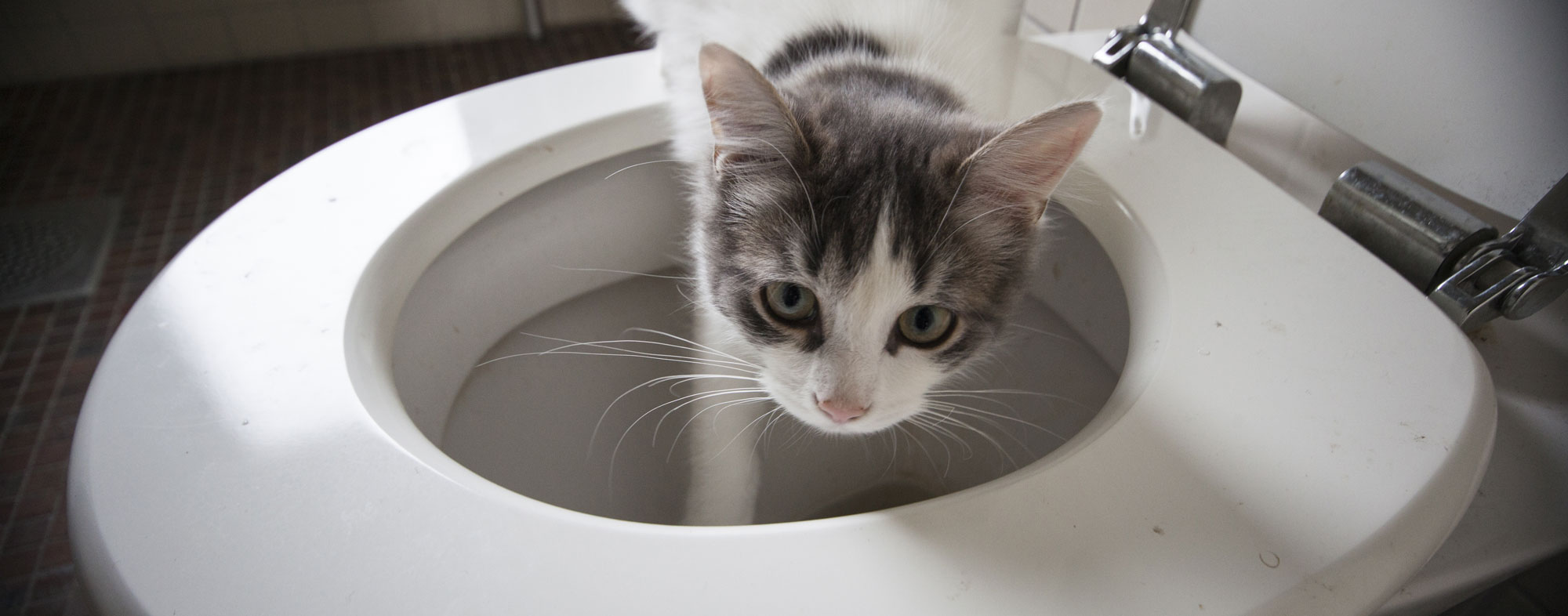This great article which follows pertaining to Don’t flush cat feces down the toilet is rather insightful. Check it out for your own benefit and decide what you think about it.

Intro
As pet cat proprietors, it's important to be mindful of just how we get rid of our feline buddies' waste. While it might appear convenient to purge cat poop down the toilet, this method can have detrimental effects for both the atmosphere and human health and wellness.
Alternatives to Flushing
The good news is, there are much safer and a lot more accountable means to get rid of feline poop. Take into consideration the adhering to choices:
1. Scoop and Dispose in Trash
One of the most usual method of disposing of cat poop is to scoop it right into a naturally degradable bag and throw it in the trash. Make certain to use a committed clutter inside story and dispose of the waste promptly.
2. Use Biodegradable Litter
Select biodegradable feline trash made from materials such as corn or wheat. These litters are environmentally friendly and can be safely dealt with in the trash.
3. Hide in the Yard
If you have a yard, consider burying pet cat waste in a designated location away from veggie yards and water resources. Make sure to dig deep sufficient to prevent contamination of groundwater.
4. Mount a Pet Waste Disposal System
Buy a pet dog waste disposal system particularly designed for cat waste. These systems make use of enzymes to break down the waste, decreasing smell and ecological influence.
Wellness Risks
In addition to environmental issues, flushing cat waste can additionally position health risks to people. Pet cat feces might contain Toxoplasma gondii, a bloodsucker that can trigger toxoplasmosis-- a potentially serious disease, especially for expecting ladies and individuals with damaged immune systems.
Environmental Impact
Flushing cat poop presents harmful pathogens and parasites right into the supply of water, posturing a substantial danger to aquatic communities. These pollutants can adversely influence marine life and compromise water high quality.
Conclusion
Responsible family pet ownership expands past giving food and shelter-- it also involves correct waste administration. By refraining from purging pet cat poop down the commode and selecting alternate disposal techniques, we can decrease our ecological impact and protect human health.
Why Can’t I Flush Cat Poop?
It Spreads a Parasite
Cats are frequently infected with a parasite called toxoplasma gondii. The parasite causes an infection called toxoplasmosis. It is usually harmless to cats. The parasite only uses cat poop as a host for its eggs. Otherwise, the cat’s immune system usually keeps the infection at low enough levels to maintain its own health. But it does not stop the develop of eggs. These eggs are tiny and surprisingly tough. They may survive for a year before they begin to grow. But that’s the problem.
Our wastewater system is not designed to deal with toxoplasmosis eggs. Instead, most eggs will flush from your toilet into sewers and wastewater management plants. After the sewage is treated for many other harmful things in it, it is typically released into local rivers, lakes, or oceans. Here, the toxoplasmosis eggs can find new hosts, including starfish, crabs, otters, and many other wildlife. For many, this is a significant risk to their health. Toxoplasmosis can also end up infecting water sources that are important for agriculture, which means our deer, pigs, and sheep can get infected too.
Is There Risk to Humans?
There can be a risk to human life from flushing cat poop down the toilet. If you do so, the parasites from your cat’s poop can end up in shellfish, game animals, or livestock. If this meat is then served raw or undercooked, the people who eat it can get sick.
In fact, according to the CDC, 40 million people in the United States are infected with toxoplasma gondii. They get it from exposure to infected seafood, or from some kind of cat poop contamination, like drinking from a stream that is contaminated or touching anything that has come into contact with cat poop. That includes just cleaning a cat litter box.
Most people who get infected with these parasites will not develop any symptoms. However, for pregnant women or for those with compromised immune systems, the parasite can cause severe health problems.
How to Handle Cat Poop
The best way to handle cat poop is actually to clean the box more often. The eggs that the parasite sheds will not become active until one to five days after the cat poops. That means that if you clean daily, you’re much less likely to come into direct contact with infectious eggs.
That said, always dispose of cat poop in the garbage and not down the toilet. Wash your hands before and after you clean the litter box, and bring the bag of poop right outside to your garbage bins.
https://trenchlesssolutionsusa.com/why-cant-i-flush-cat-poop/

We are very serious about Can You Flush Cat Poop Down The Toilet? and I hope you enjoyed reading my post. Remember to take the opportunity to promote this write-up if you enjoyed it. Thank you so much for going through it.
Apply Now